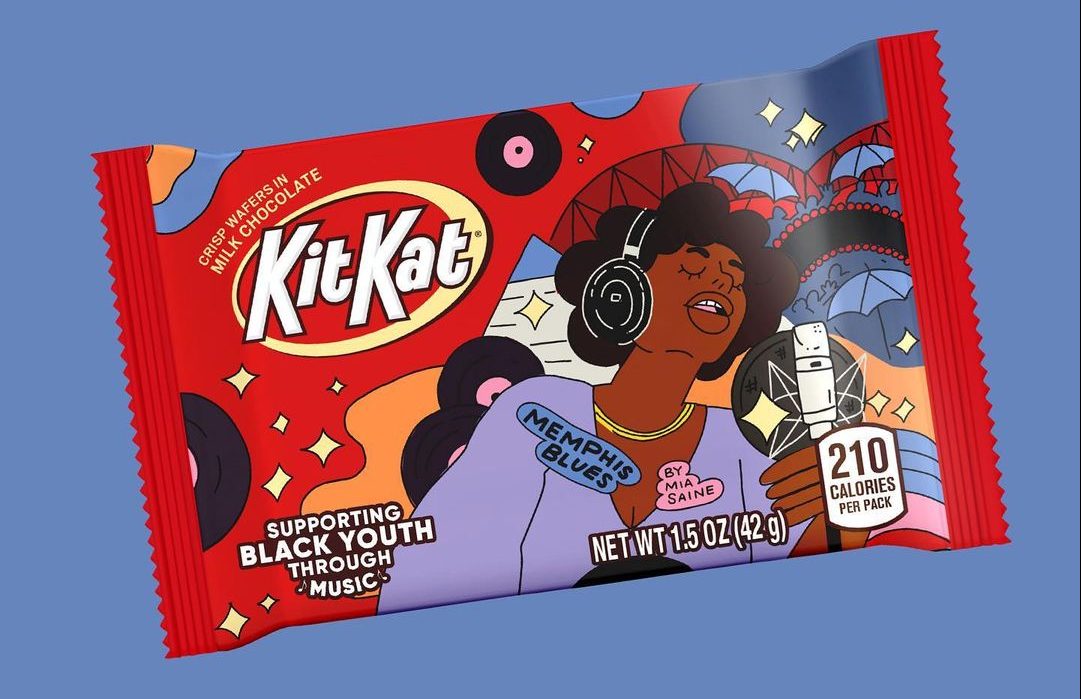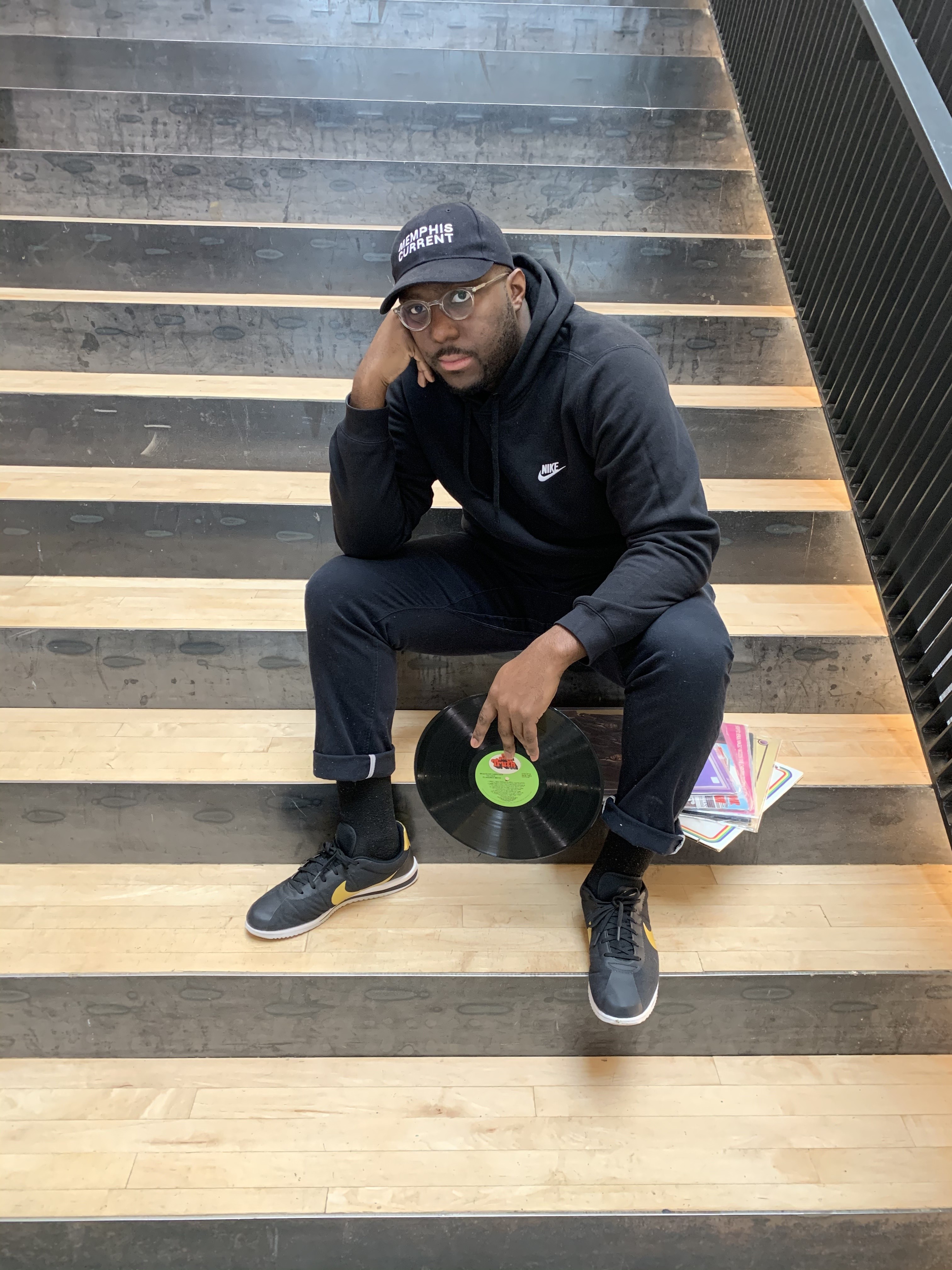Fans of KitKat bars might spy a touch of Memphis style on their candy wrappers soon. The Hershey-owned brand recently partnered with Black illustrators to design wrappers that “depict Black Music in six cities across the U.S.” In addition, they have also decided to partner with a nonprofit in each of those cities to celebrate Black Music Month.
The nonprofit chosen for the city of Memphis is the Memphis Music Initiative, and for the month of June, customers will be able to buy KitKats with artwork inspired by the city of Memphis, created by Memphis artist Mia Saine. Saine also designed the wrappers for New York City and New Orleans.
In an Instagram post, Saine explained that as a Memphis native, they grew up loving legends such as Carla Thomas, Ann Peebles, and Ruby Wilson, and that the design is “heavily inspired by its historic rock’n’roll and soul era.”
According to KitKat, these cities “bring positive change and opportunities for Black youth through music.” This is the second time that the company has partnered with the Memphis Music Initiative.
Last year, the wrappers were only available in Target stores. But this year, Brianna Harrington, program manager for Memphis Music Initiative’s Institute for Nonprofit Excellence, explained the candy will be in places like Walmart, Kroger, and Dollar General.
Harrington said Hershey was looking to find a way to connect more with their Black audiences, and to elevate and engage that audience in a way that was authentic.
“It wasn’t something for Black History Month. Everyone does some sort of campaign around Black History Month,” she said. “That’s not necessarily what they wanted to do. They wanted very authentic, true engagement, so they decided to focus on Black Music Month to elevate the contributions of Black music throughout history.”
Harrington explained that Hershey is very intentional about the way they engage Black artists through their partnership. The campaign released a “Sounds of Soul In Memphis” video that not only showcased the work of Memphis Music Initiative, but also featured Memphis artists Kirby, Tyke T, and Evvie McKinney. Honoring current artists, in addition to musical legends, was another big focus.
“That’s really what helps us in terms of making sure the partnership is aligned with what we do,” said Harrington. Along with “very bold” grant making practices that elevate the network of Black artists in the city, the Memphis Music Initiative hosts an in-school program that allows artists to work as fellows in schools. The organization also runs an internship program focused on helping young people confidently step into careers in artistry.
“We teach them how to negotiate compensation, understand contracts. That’s what’s really unique with us, because you don’t really see that,” added Harrington. “We make sure that these young people are really set up for success in terms of having a fruitful career. We don’t want the adage of being a starving artist to be the expected experience, because it doesn’t have to be.”
Through the partnership with KitKat, Memphis Music Initiative has been able to expand its mission nationally. Harrington explained that they have been able to partner with Urban Word in New York, DC Strings Workshop in Washington, D.C., the Trombone Shorty Foundation in New Orleans, We Are Culture Creators in Detroit, and the Harmony Project in Los Angeles.
“It has been truly wonderful to see how much amazing work has taken place all over the country in the work of elevating and bolstering creative youth development, especially Black and brown youth,” said Harrington. “Each of these organizations also has a focus on workforce development. It’s really important for us to prepare young people who are interested in being successful in any realm of the entertainment industry. That’s something we share with all of these organizations.”

